Most people associate hair loss with ageing or stress. While both are factors, they aren’t the only ones. If you’re a diabetic and experiencing hair loss, there’s no need to panic. It’s common among diabetics because their bodies don’t produce enough insulin or become resistant to insulin. So, can diabetes cause hair loss? We’ll discuss this and more.
Check out our article fresh juice recipes for diabetics for information on nutrition that reduces the effects of diabetes. For more information, have a look at our article diabetes and aching feet.
Can diabetes cause hair loss?
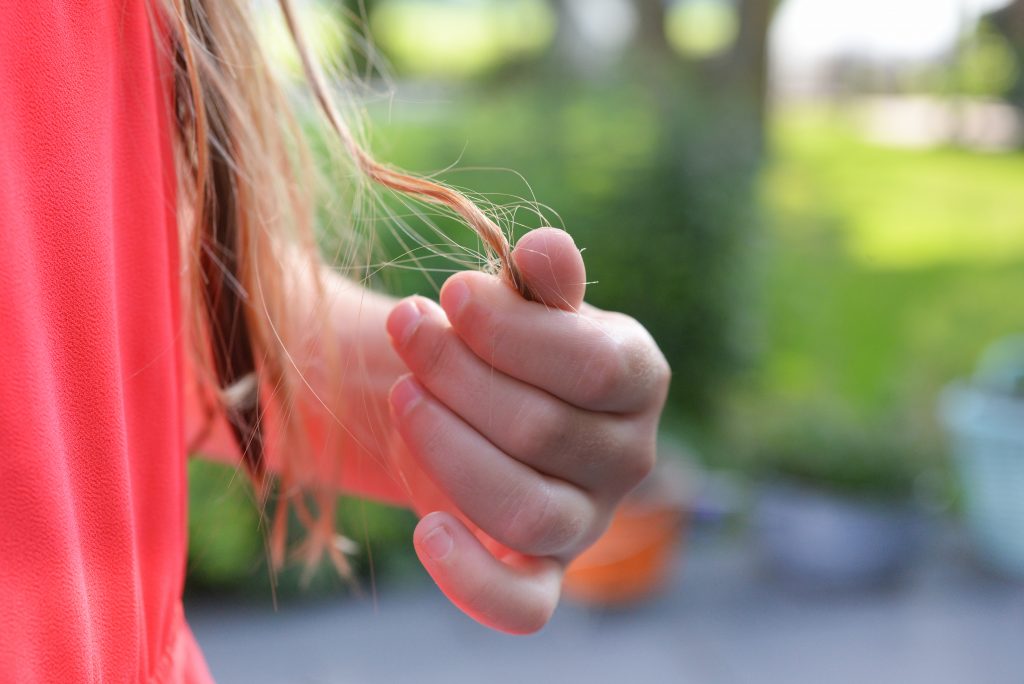
In short, yes. In the early stages of type 1 or 2 diabetes, there might not be any noticeable signs of hair loss. This changes as blood glucose levels continue to rise.
Both conditions result in high blood glucose levels, which lead to inflammation in the body and hair loss. The results are more obvious if you’re a type 1 diabetic, but long-term high blood glucose affects your hair in both types of diabetes.
Thyroid disease
Type 2 diabetes is linked with another medical condition that affects your hair called thyroid disease.
How it causes hair loss
The thyroid gland produces hormones that influence the metabolism for almost every function in your body, including your hair growth. Unhealthy levels of these hormones could cause patchy hair loss, hair breakage, slow hair growth and other symptoms.
Scalp issues
Diabetes affects your blood flow, which could cause the skin around your scalp to become sensitive and inflamed resulting in dandruff. Your scalp might also feel itchy or tight at all times.
How does diabetes affect hair loss?
Insulin resistance is the main cause for nearly all of the most common modern chronic diseases such as Type 2 diabetes, obesity, heart disease and even cancer.
One of these diseases that are quite well known in regards to hair loss is type 2 diabetes (T2D). Most people know someone or know of a family member with T2D, most likely they have experienced hair loss themselves but the question is why?
Glycation
One of the main reasons for hair loss in those with diabetes is due to a process called “glycation”.
Normally when blood sugar levels rise, insulin can lower these levels by transporting glucose from the blood into cells. However, if this fails to happen then an excessive amount of glucose stays in your bloodstream.
The details
Excess sugar will then bind to proteins in a process called “glycation” where the protein itself becomes less functional and may even not function at all. This can affect the structure of other proteins as well.
These new, glycated proteins are more likely to accumulate within cells and cause oxidative damage, which is known to cause premature ageing of the hair.
High blood sugar levels
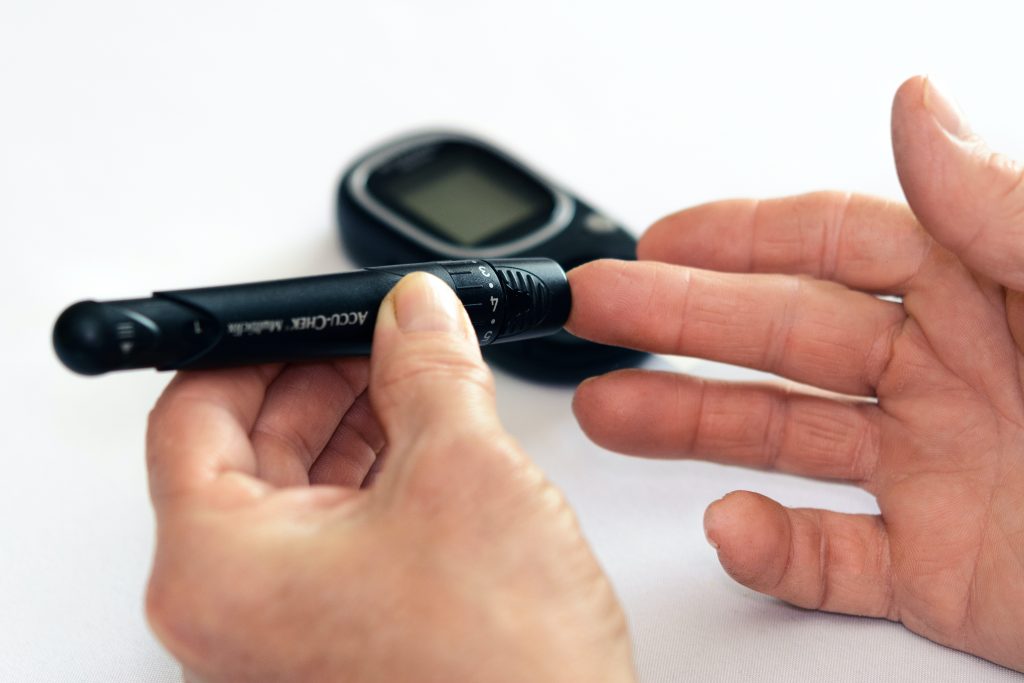
It is not known for certain why this process affects hair more than other organs, but it is thought that since hair follicles are small and at the surface of the skin that they absorb glucose faster than other cells.
This means that it doesn’t take long before excessive sugar has a toxic effect on the hair follicle.
It could also be that hair structures have more glycated proteins than other tissues and can therefore accumulate in the follicles faster. This means that even though glucose will not be found in abundance in the blood, it is still causing damage to the skin, and hence the hair.
Why does diabetes cause hair loss?
One reason for this is that the patient’s body is no longer producing sufficient insulin so damaged hair follicles will not be able to grow properly.
It is thought that around half of all men will have a receding hairline by the time they are 40, but in those with T2D, this process starts earlier on in life and progresses faster.
Type 2 diabetes and hair loss
Another reason for this is that the hair follicles may not be able to produce enough new cells in their epithelial stage due to a poor diet, because of the body being unable to produce sufficient insulin.
The vast majority of T2D sufferers are overweight and diabetic complications, such as heart disease, increase more than in those who don’t have diabetes which can also lead to inflammation around the hair follicles making them unable to grow.
B12
It has also been shown that people with diabetes have an increased risk of iron deficiency which can lead to problems with hair growth and loss as well as vitamin B12 deficiency since B12 is crucial for the body to create red blood cells which carry oxygen and nutrients throughout your body.
Stress and Hormones
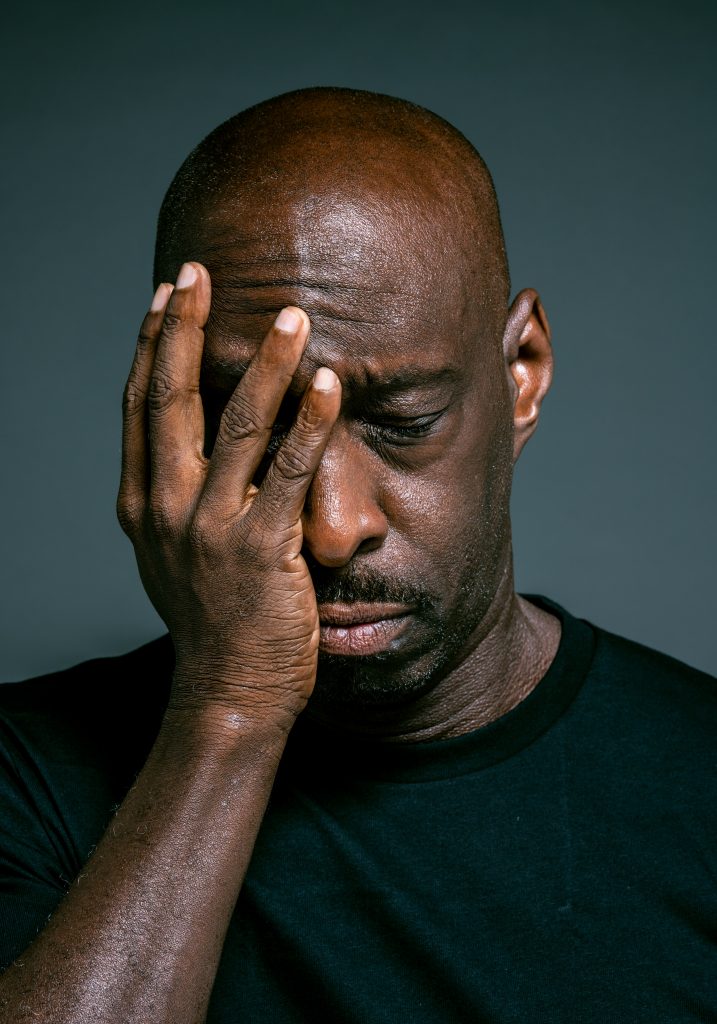
The role of cortisol
Cortisol is produced in large amounts during periods of stress (along with coffee, alcohol and cigarettes) causing elevated levels of cortisol that shut down vital hair follicles leading to ineffective blood supply and thinning hair.
Insulin sensitivity
When we are chronically stressed, our hair follicles lose their insulin sensitivity and hormone receptors to produce the enzymes necessary for successful hair growth and thick healthy hair.
Insulin is a major regulator in the production of hair growth and when one loses their sensitivity to insulin, they can’t produce what’s needed for healthy hair.
A normal scalp has about 100,000 hairs; however, people with diabetes usually have only one-third of that. This occurs once hair follicles lose their insulin sensitivity.
High blood sugar
High blood sugar levels are also a culprit for thinning hair in diabetics. When blood sugar levels drop too low or rise too high (hyperglycemia), it can cause the body to send an “alert” or fight/flight response.
The cerebral cortex of the brain is activated by this signal (due to a surge in epinephrine) which sends out a series of hormonal signals including cortisol, glucagon and others that can also be carcinogenic or cancer-causing agents.
Thinning due to stress
Studies show that people with diabetes have higher levels of cortisol that inhibit the growth phase for new hair production. Cortisol over time will disrupt and destroy new hair follicles. The epidermis (the topmost layer of the skin) cannot produce new hair and thus thinning occurs.
Alopecia
If a patient is not diagnosed early enough and thus suffers from the effects of hyperglycemia (blood sugar) over time, people will experience hair loss.
Over the years, affected individuals have an increase in the number of hair follicles that are not functioning, which can lead to complete baldness. This pattern of thinning hair is called “alopecia.”
Alopecia areata
What is it?
Alopecia areata is an autoimmune condition in which the immune system attacks hair follicles. The result is patchy baldness anywhere on the body, including the head, legs, arms, and underarms.
Symptoms include round or ovoid patches of hair loss that can grow to be as large as several inches wide or across.
The condition is not curable, but it can be treated with certain medications, such as corticosteroids. Alopecia areata can also occur in children and adolescents; however, this form of the disease tends to be less severe.
What does it do?
Alopecia areata is a common autoimmune disorder that affects about 2% of people. It is most common in white people and more common among women than men.
Details
The condition typically begins with round or oval patches of hair loss. This can be anywhere on the body but is most often on the scalp (in fact, it is sometimes called spot baldness).
These patches vary greatly in size; some that occur on the scalp can be as small as two millimetres across, while others may be several inches wide (in extreme cases). Other common areas of hair loss include the beard area of men and the eyebrows.
Accompanying symptoms
The patches usually grow slowly over a period of months to years. By this point, many people have also experienced itching, tingling, or pain at the patches of hair loss.
These symptoms are especially common in the scalp and may be difficult to distinguish from an itchy scalp that can occur for other reasons. The patches are often red, scaly, and inflamed-looking.
How to prevent diabetes-related hair loss
As we know, Diabetes can occur when blood sugar levels are too high. The excess of glucose in the bloodstream attracts water from the surrounding tissue and forms a thick, syrupy fluid called glycosuria.
This process breaks the hair shaft down at its core leaving you with brittle and damaged weak hairs that fall off easily due to breakage.
Reduce high blood sugar levels
And as we know, hair loss happens for various reasons which are genetic, nutritional and physiological in nature. If you suffer from a condition like diabetes that leads to the breakage of hair strands/stems it can result in hair loss.
So it is important not only to control blood sugar levels but also have to take care to strengthen hair roots and prevent breakage from occurring in the first place.
Reasons for thinning hair and hair loss
In fact, most diabetic patients have weak capillaries that allow fluids to seep out into surrounding tissues leading to an edematous condition.
This is mainly due to polyuria (excessive urination), which disturbs ionic balance and electrolyte balance, especially potassium.
The potassium level in the blood decreases causing osmotic imbalance and leads to salt depletion and thus swelling of cells due to excess water retention in tissues such as skin, muscles, etc.
14 natural topical and edible ingredients to prevent hair loss
Castor oil
It helps in improving blood circulation and promotes hair growth. It is rich in ricinoleic acid. This has a protein building action on the skin cells of the scalp, thus helping in faster hair growth
Coconut oil

It is useful for cooking but it can also be your saviour from diabetes-related hair loss. This is because it helps to strengthen the hair roots. Coconut oil improves blood circulation to the scalp, which is very helpful in treating hair loss. It also replenishes nutrients to hair follicles.
Green tea

It is an effective home remedy for treating hair loss. The reason behind it is that green tea has polyphenols. These are very powerful antioxidants and help prevent protein loss in the body. Green tea improves blood circulation to the scalp. It also helps to remove a large number of toxins from the body. Thus it prevents hair fall to a greater extent. Green tea is also natural insulin and cholesterol-lowering agent which helps you to control blood sugar levels.
Garlic
It is another effective home remedy when it comes to dealing with diabetes-related hair loss. This is because it has anti-fungal and antibacterial properties. Thus it fights fungi in the scalp that may cause hair loss due to fungal infection. Garlic can fight various other infections that may lead to hair fall. It has sulfuric acid, which helps prevent excessive urination and swelling of the scalp.
Oatmeal
The high fibre content of oatmeal helps to lower the sugar levels in the blood. It also has antioxidant properties that help to prevent hair loss caused due to diabetes.
Lavender

It has aromatherapy uses and also is a home remedy for treating various skin related problems including hair loss caused due to diabetes. Lavender is very effective in treating hair loss as it helps to prevent fungal and bacterial infections in the scalp, thus preventing hair fall. It also promotes the growth of hair follicles due to its antiseptic properties.
Aloe Vera

It has various health care uses including shampoos and conditioners that are especially for treating dry and brittle hair and to promote its growth. It is effective in treating hair loss caused due to diabetes because it has properties that can help fight fungi and microorganisms that cause skin infection, thus preventing hair fall.
Chia seeds
They are rich in omega 3 fatty acids that help keep blood sugar levels under control. It also helps in the formation of collagen that keeps the hair skin and nails healthy.
Ginger
It is a natural treatment for diabetic patients because it has anti-inflammatory properties. It helps in maintaining blood sugar levels and also triggers the production of insulin from the pancreas, thus helping you to manage blood glucose levels more easily.
Lettuce
It is not only healthy for consumption but is also effective in preventing hair loss caused due to diabetes. It has chlorophyll that improves blood flow and thus helps you to prevent hair fall.
Spinach
This leafy green vegetable helps to remove the excess fluid from the body, which tends to accumulate in various tissues including the scalp, thus preventing hair loss. Spinach improves the process of muscles absorbing glucose, which helps to keep blood sugar levels In control and stops hair fall as well.
Apples
They are rich in vitamin E that helps to improve the circulation of blood to the impacted areas such as the scalp and strengthens hair follicles. So apples are very effective in preventing hair fall caused due to diabetes.
Almonds
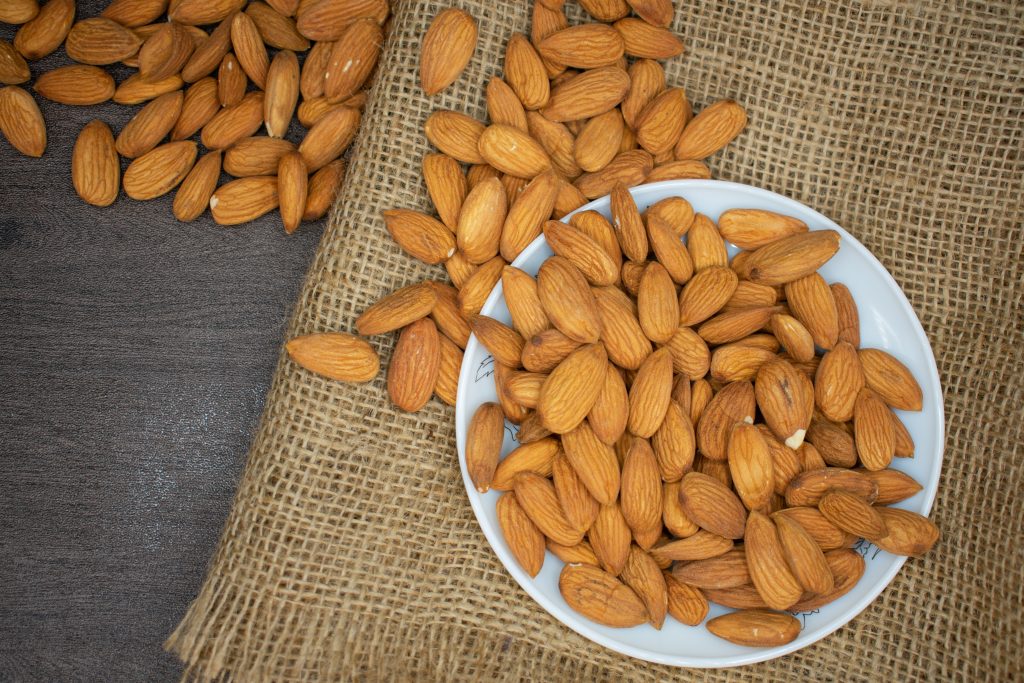
They are rich in vitamin E and magnesium that helps to keep blood sugar levels under control. It also strengthens hair follicles thus helping you to prevent hair loss caused due to diabetes.
Walnuts
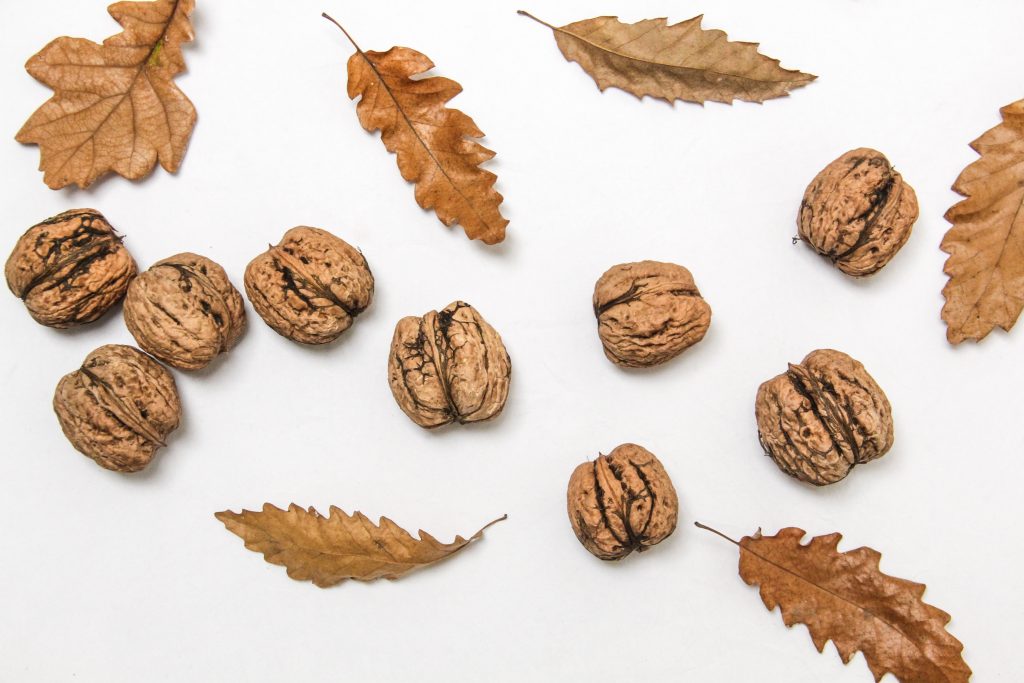
They improve blood circulation by promoting the growth of new cells. This prevents hair fall and promotes the health of the hair. They are also rich in vitamin E and omega 3 fatty acids that help to keep blood sugar levels under control, thus preventing hair fall.
Biotin
Biotin, aka vitamin B7, and is a water-soluble vitamin that occurs naturally in some foods such as liver, eggs, wheat germ, and avocado. It can be a dietary supplement, and it is available in the form of a pill or powder.
According to studies, using biotin as a supplement is effective in promoting the growth of healthy hair.
Benefits
Biotin promotes hair growth by triggering the production of keratin proteins which are largely responsible for giving strength and structure to locks. Yet another study conducted on 100 adults showed that participants who took biotin supplements for a year were less likely to suffer from progressive hair loss compared to those who did not take the supplements.
So we’ve answered the question can diabetes cause hair loss? Hopefully, some of the practical steps we’ve mentioned have been helped you deal with hair loss and diabetes! If you enjoyed our article on can diabetes cause hair loss, check out our other articles on diabetes.















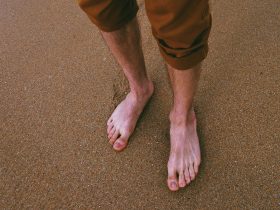
9470 Comments